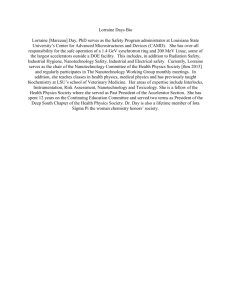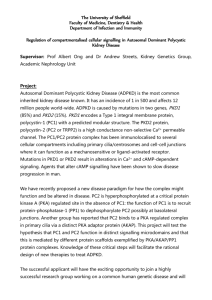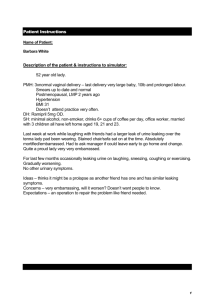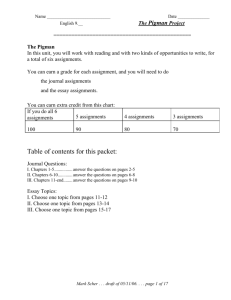adult polycystic kidneys
advertisement
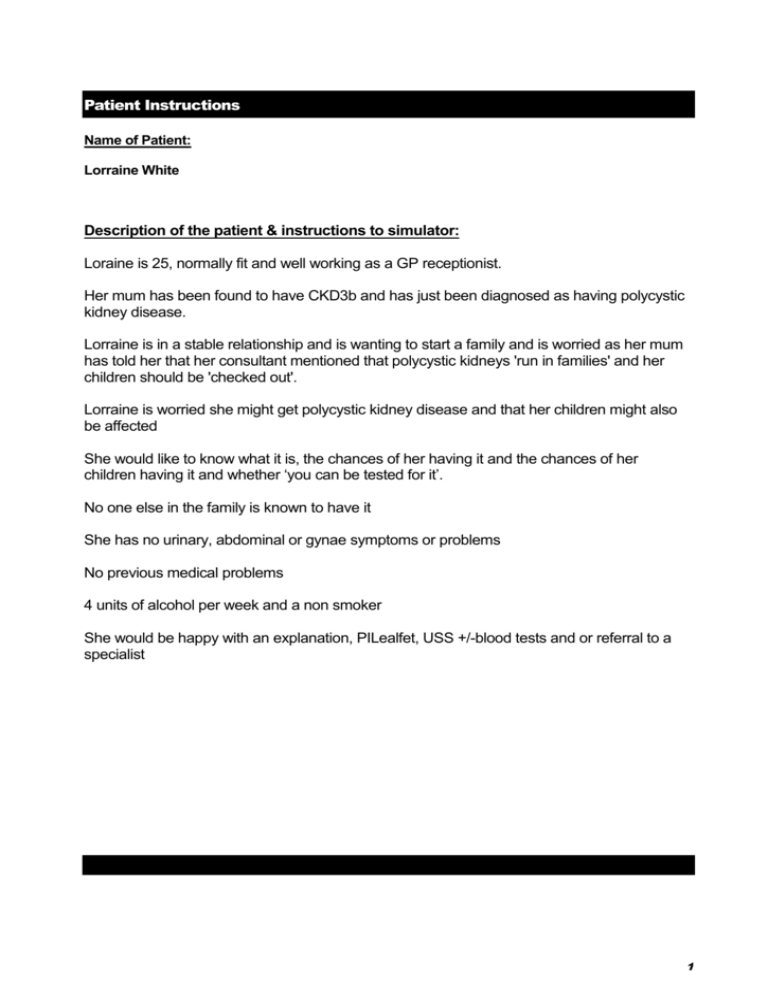
Patient Instructions Name of Patient: Lorraine White Description of the patient & instructions to simulator: Loraine is 25, normally fit and well working as a GP receptionist. Her mum has been found to have CKD3b and has just been diagnosed as having polycystic kidney disease. Lorraine is in a stable relationship and is wanting to start a family and is worried as her mum has told her that her consultant mentioned that polycystic kidneys 'run in families' and her children should be 'checked out'. Lorraine is worried she might get polycystic kidney disease and that her children might also be affected She would like to know what it is, the chances of her having it and the chances of her children having it and whether ‘you can be tested for it’. No one else in the family is known to have it She has no urinary, abdominal or gynae symptoms or problems No previous medical problems 4 units of alcohol per week and a non smoker She would be happy with an explanation, PILealfet, USS +/-blood tests and or referral to a specialist 1 Doctor’s (GP ST) Instructions Name & age of patient Lorraine White Summary Card PMH: Nil DH: Nil Allergies:None BP/BMI/ ?smoking and alcohol hx: Case Notes - Last few entries in records: 2010 – flu like symptoms, advised re rest, fluids and paracetamol 2 CSA EXAMINATION CARD Patient Name: Lorraine White Examination findings: BP 120/60 Urine dip negative for blood, glucose and protein Abdo exam – no enlarged kidneys felt, no masses 3 CSA Case Marking Sheet Case Name: Lorraine White Case Title:ADPKD Context of case Mum has polycystic kidney disease, Lorraine worried as wanting to start a family Assessment Domain: 1. Data-gathering, technical and assessment skills Positive descriptors: Negative descriptors: Explores Ideas (knows little about it other than it runs in families), Concerns (do I have it? Might my children have it?), Expectations (information, testing, advice) FH explored Asks re abdo pain, abdo swelling, hx of renal stones (renal stone hx in 1 in 5 patients with ADPKD!), haematuria? Does not identify ICE especially concerns re he plans to have children Does not ask about urinary symptoms e.g. haematuria Does not ask about abdominal symptoms FH not explored Inadequate examination No urine dip test Appropriate exam (BP, urine dip test and abdo exam) Assessment Domain: 2. Clinical Management Skills Positive descriptors: Negative descriptors: Comprehensible explanation conditions and inheritance ICE addressed Offer of blood test (kidney function), ACR, USS Offer of a Pileaflet – with contents explained of the Incomprehensible explanation Aspects of ICE not addressed Inappropriate tests or no tests Lack of signposting to website or PIlealfet Inadequate safetynetting Review after results Consideration of the merits of genetic counselling referral Safetynetting Assessment Domain: 3. Interpersonal skills Positive descriptors: Negative descriptors: Empathetic, rapport built Concerns explored Shared management plan achieved Concerns not handled unsympathetically Understanding explored Paternalistic approach to management Cues missed or handled 4
